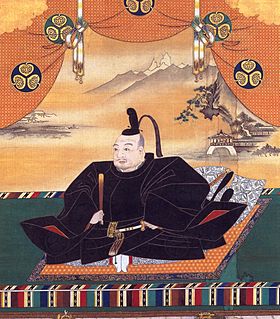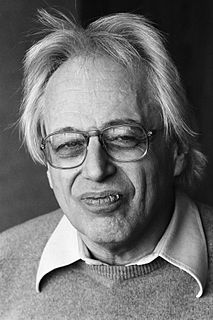A Quote by Margaret Mead
Laughter is man's most distinctive emotional expression. Man shares the capacity for love and hate, anger and fear, loyalty and grief, with other living creatures. But humour, which has an intellectual as well as an emotional element belongs to man
Related Quotes
Sociopaths differ fairly dramatically in how their brains react to emotional words. An emotional word is love, hate, anger, mom, death, anything that we associate with an emotional reaction. We are wired to process those words more readily than neutral, nonemotional words. We are very emotional creatures. But sociopaths listen as evenly to emotional words as they do to lamp or book - there's no neurological difference.
There is no hate without fear. Hate is crystallized fear, fear's dividend, fear objectivized. We hate what we fear and so where hate is, fear is lurking. Thus we hate what threatens our person, our liberty, our privacy, our income, our popularity, our vanity and our dreams and plans for ourselves. If we can isolate this element in what we hate we may be able to cease from hating... Hate is the consequence of fear; we fear something before we hate; a child who fears noises becomes the man who hates them.
To repress rebellion is to maintain the status quo, a condition which binds the mortal creature in a state of intellectual or physical slavery. But it is impossible to chain man merely by slaving his body; the mind also must be held, and to accomplish this, fear is the accepted weapon. The common man must fear life, fear death, fear God, fear the Devil, and fear most the overlords, the keepers of his destiny.
A man of knowing attains to a sense of humour. Let this always be remembered. If you see someone who has no sense of humour, know well that that man has not known at all. If you come across a serious man, then you can be certain that he is a pretender. Knowing brings sincerity but all seriousness disappears. Knowing brings a playfulness; knowing brings a sense of humour. The sense of humour is a must.
But man has other needs as well: emotional needs. These, too, are few, but every bit as important as his physical requirements, yet not so simple. If they aren't met, they can be as devastating as physical hunger, as uncomfortable as a lack of shelter, as incapacitating as thirst. The frustration, isolation and anxiety brought about by unmet emotional needs can, like physical privation, produce death or a degree of living death - neurosis and psychosis.
The highest spiritual quality, the noblest property of mind a man can have, is this of loyalty ... a man with no loyalty in him, with no sense of love or reverence or devotion due to something outside and above his poor daily life, with its pains and pleasures, profits and losses, is as evil a case as man can be.
laughter, that distinctively human emotion, laughter which springs from trust in the other, from willingness to put oneself momentarily in the other's place, even at one's own expense, is the special emotional basis of democratic procedures, just as pride is the emotion of an aristocracy, shame of a crowd that rules, and fear of a police state.
Anger clearly has its proper place at work, which is neither wholly absent nor ever present. The manager who is an emotional blank is just as hard to work for as the volcanic boss, and both can do great harm by setting an unhelpful example for what kind of emotional expression is expected and accepted.



































